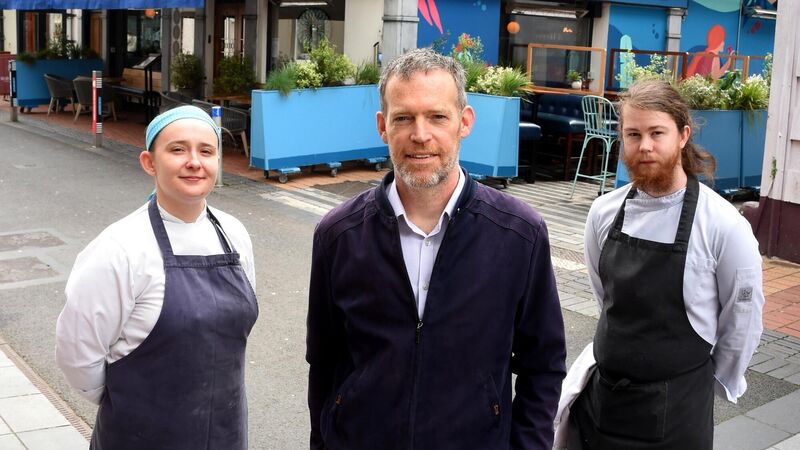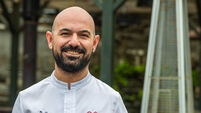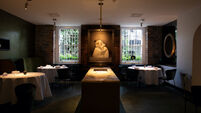Meet some of the people making Cork the best city for outdoor dining

Aishling Moore, head chef at Goldie, proprietor Conrad Howard, Market Lane and Harrison Sharpe, head chef at Elbow on Oliver Plunkett Street, Cork. Picture: Larry Cummins
I’ve never been one for all that parochial – even tedious –“Real Capital” guff, reasoning that Cork’s unique charms and attractions and the wonderfully skewed world view of its citizenry more than speaks for itself, transcending a need for any self-promoting peacockery.
But there was no need at all to boast about the incredible fashion in which the city’s hospitality sector embraced outdoor dining in response to the challenges of the pandemic. That’s because the rest of the country was hogging all the hymn sheets to sing the praises of this new alfresco version of Cork and the energy and innovation that made it happen.





